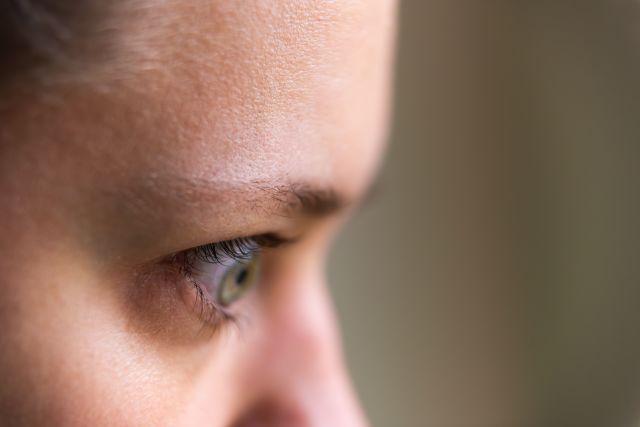Thyroid eye disease (TED) is a condition that affects some people who have an autoimmune disease called Graves’ disease. With Graves’ disease, the immune system attacks the thyroid gland, a hormone-producing gland in the neck.
When a person has TED, the immune system attacks the tissues and structures around the eyes, causing them to become inflamed and disrupting how the eyes look and function. There are treatments that can help, and people who have TED should seek treatment as early as possible.
Here, we look at some of the complications that can occur when TED is left untreated or there are delays in treatment.
Worsening symptoms, vision loss
One of the most recognizable symptoms of TED is bulging or protruding eyes. This occurs when inflamed tissues around the eyes push the eyeballs forward and cause the eyelids to retract. Other symptoms include:
- Dry and irritated eyes (sometimes described as a “gritty feeling”)
- Sensitivity to light
- Blurred vision
- Double vision
- Pain with eye movement
- Headaches
TED is a progressive condition, meaning these symptoms often get worse over time. Eyes may protrude more, dryness and irritation can become severe, pain and problems with vision can become more severe.
Inflammation in the structures around the eyes can also cause vision loss—and in rare cases, blindness.
- Corneal erosion. When the eye bulges or protrudes, it cannot close properly, and the front layer of the eye (the cornea) can wear away from prolonged exposure. This can cause vision to become blurry or hazy. This is also painful.
- Optic nerve compression. Severe swelling in the muscles of the eye can compress the optic nerve (which connects the eye to the brain). This can cause lights to look dimmer, colors to look muted, vision to become blurry. It can also cause pain with movement.
Reduced quality of life and mental health
Quality of life refers to how you feel about yourself and your ability to enjoy your life and do the things you want to do. Impact on quality of life is sometimes used to assess the severity of certain conditions. Improving quality of life is a goal of treatment for many conditions.
Living with TED can reduce a person’s quality of life, for obvious reasons—living with constant eye irritation can be frustrating and exhausting, vision loss can mean relying on others and feeling like a burden, bulging eyes can cause a person to feel insecure or anxious about their appearance.
Research has found that people with TED are at a much higher risk of anxiety and depression than people without the condition. The hormonal changes that occur when a person has Graves’ Disease can also contribute to mental health conditions.
What treatments are available?
Corticosteroid medications can help reduce inflammation in the early stages of TED, and surgery can help alleviate compression and improve the appearance of bulging eyes. Mental health and social support are an important focus of treatment.
The choice of treatment will depend on whether TED is in the active phase or stable phase, as well as other factors about a person’s symptoms and their overall health. The most important thing that a person with TED can do is work with a specialist that has experience treating the condition.
Treatment options for people with TED are also improving. In 2020, the U.S. Food & Drug Administration approved the first medication to treat TED, and several additional medications are under development.
Treating Graves’ Disease is also an important aspect of treatment.






